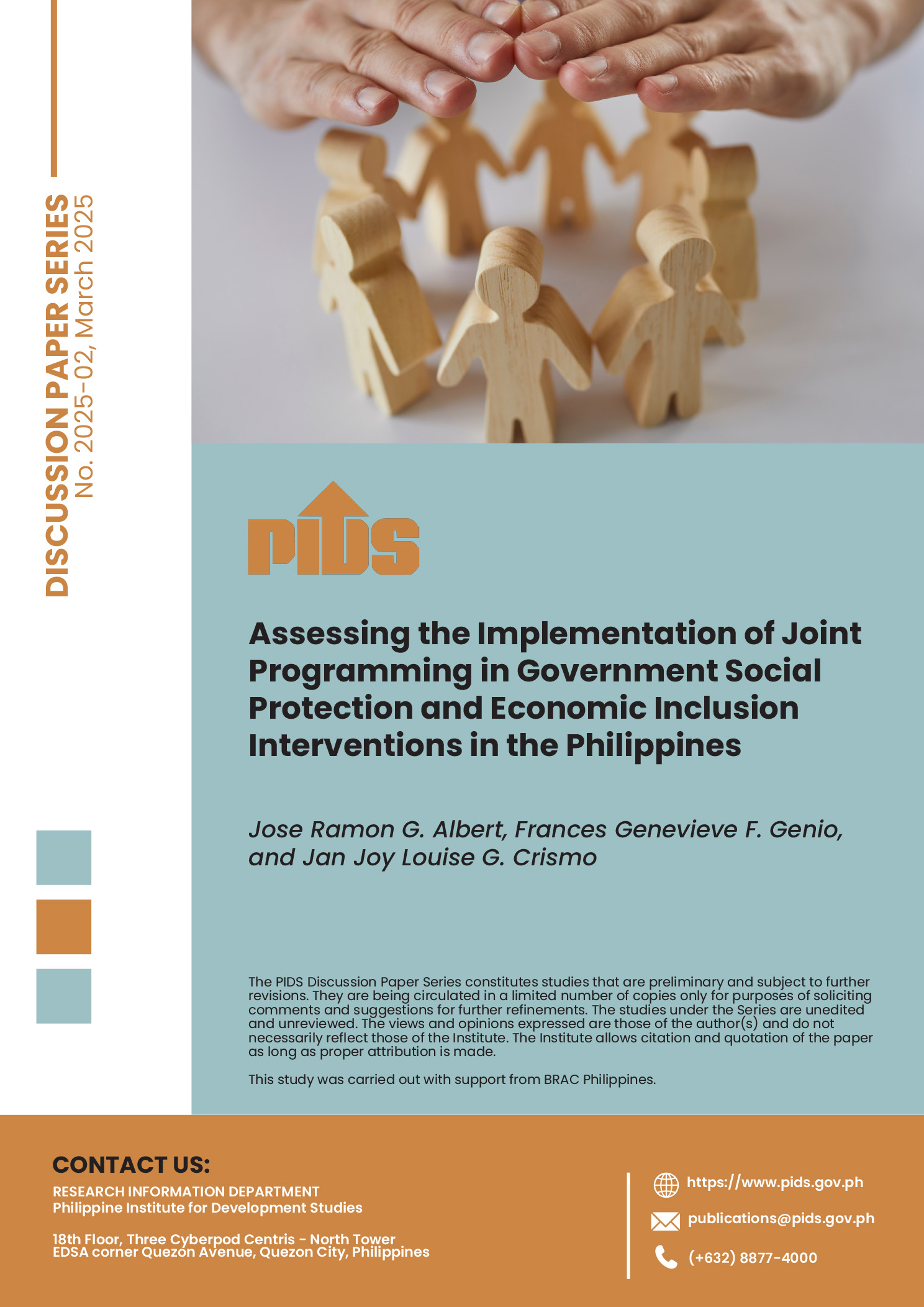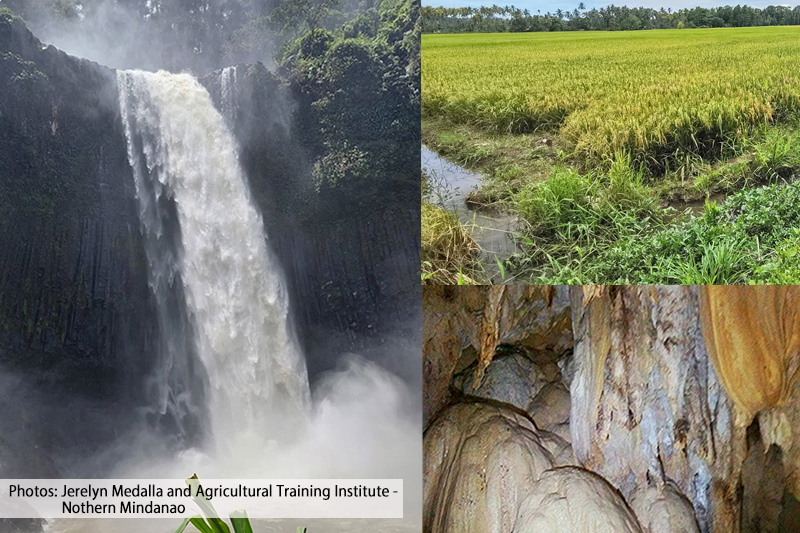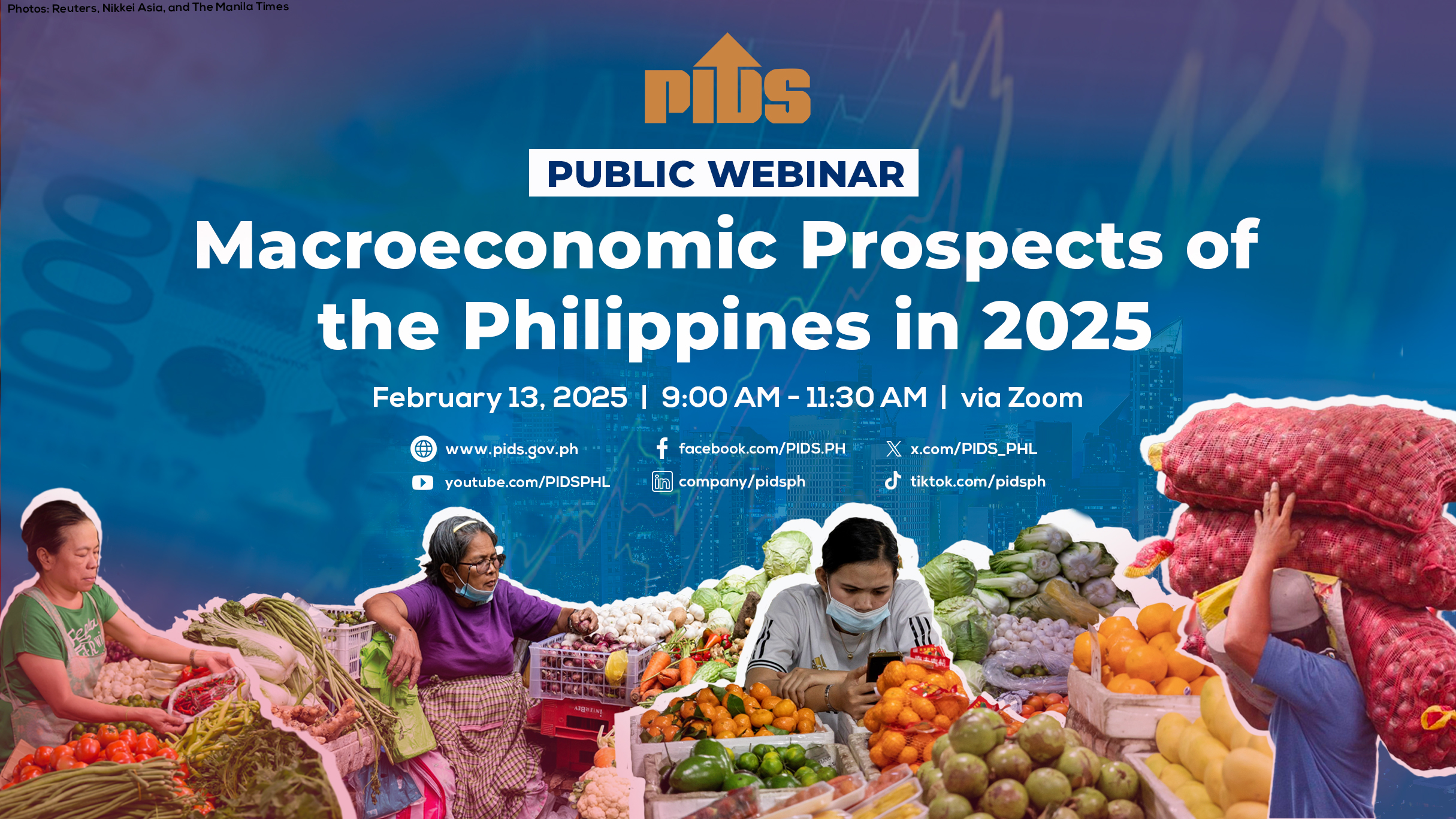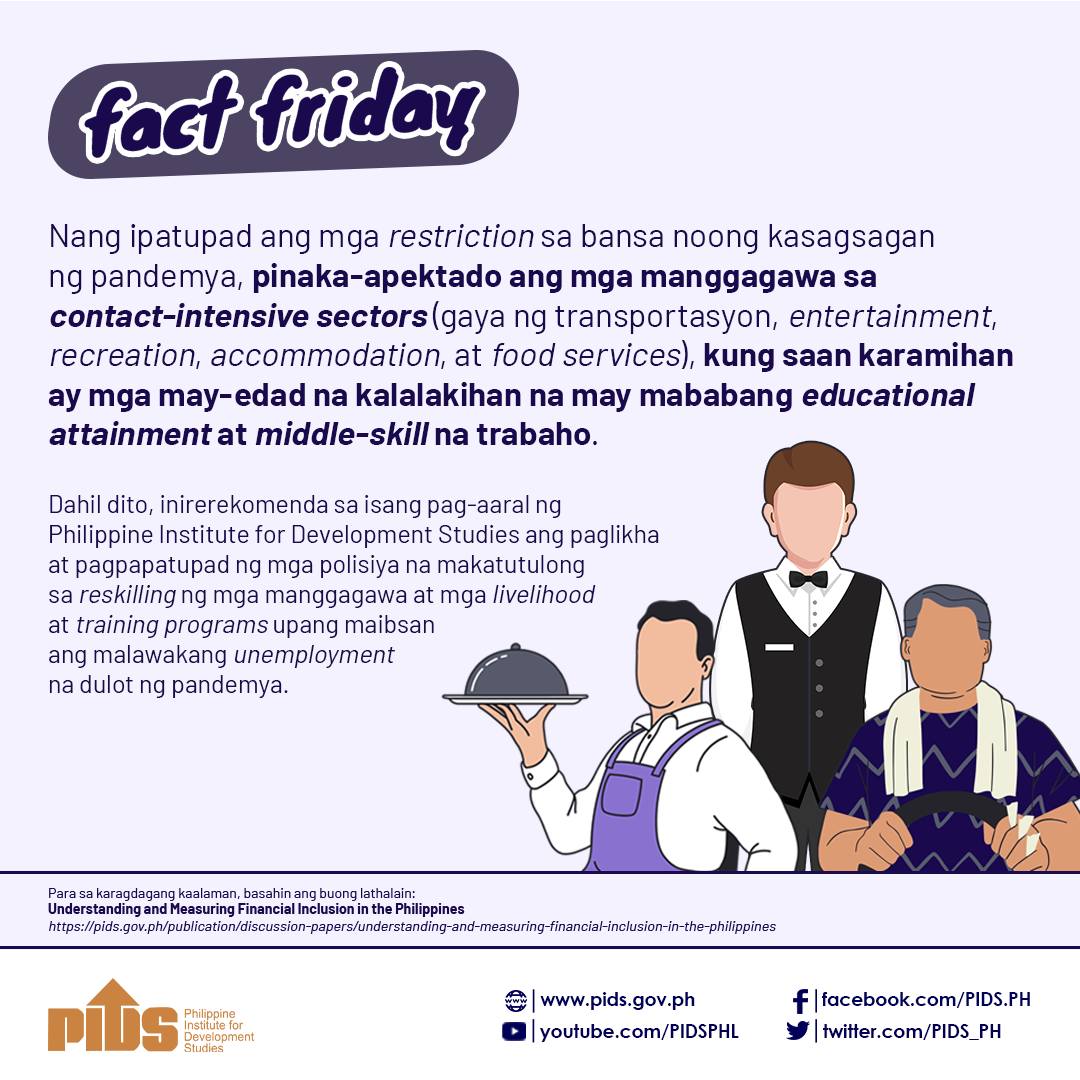The Philippines’ economic performance this year could get significant support from four key sectors of interest namely, renewable energy, infrastructure, digital transformation and healthcare, the Philippine Institute for Development Studies (188ΜεΣύ) said.
These sectors are highlighted as key trends in the Philippine market for this year, taking into account rising investor focus on environmental, social and governance principles.
John Paolo Rivera, 188ΜεΣύ senior research fellow, discussed details and explanations for the key interests mentioned in a February 13 webinar presentation. The 188ΜεΣύ made the materials available on its website over the weekend.
“In terms of digital transformation, the adoption of AI (artificial intelligence) would continue as AI applications are expanding across sectors, including BPO (business process outsourcing), retail, healthcare, enhancing productivity and innovation,” Rivera said.
“The rise of FinTech (financial technology) and with Filipinos embracing digital payments, FinTech companies are now scaling operations, particularly in the underserved rural areas,” he added.
Thus, Rivera said, there are investment opportunities in digital banking, blockchain applications and different online lending platforms.
On infrastructure development, Rivera said the government’s “Build, Better, More” program is expected to continue, prioritizing infrastructure investment, including new roads, bridges, airports and railways, with increased public-private partnership projects.
“Key projects we’re looking forward to (include) the expansion of the Metro Manila Subway, the Mindanao Rail Project, which would spur economic development in Mindanao, and different major airport upgrades in the country as the Philippines positions itself as a tourism powerhouse in Asia to attract more foreign tourists in the country,” Rivera said.
“With this, there are opportunities in construction, engineering, real estate sectors standing to benefit from these ongoing projects,” he added.
In terms of energy transition and sustainability, Rivera said the shift to renewable energy sources is gaining momentum, driven by the Renewable Energy Act and the country’s global sustainability commitments.
“With the rallying call towards sustainability across industries, many enterprises and developers are now focusing on green building certifications, energy-efficient designs, sustainability accreditations, as part of the Philippines’ contribution to the sustainable development goals,” Rivera said.
Rivera said that in terms of consumer spending, the growing middle class and young population would drive up demand for consumer goods, real estate, and financial products.
“With the rise of FinTech companies, e-commerce and online retail would continue to thrive as more Filipinos embrace online shopping platforms,” Rivera said.
The return of international tourists is expected, Rivera said, and with relaxed travel restrictions, increased airline connectivity, and alternative entry points, inbound tourism is expected to return.
“However, statistics have shown at least 80 percent of tourism receipts are driven by domestic tourism. So, there is the continued promotion of local destinations for locals, for Filipinos, to sustain their travel that will drive growth in the tourism and hospitality sector,” Rivera said.
“So with this, there are opportunities in hotel investments, ecotourism, digital platforms specializing in travel services,” he added.
In terms of agribusiness modernization, Rivera said tech integration in agriculture is key.
“Agri-tech innovations such as smart farming and drone technology are being implemented to improve productivity,” he said.
There are opportunities in cold storage, supply chain logistics, and high-value crops, he added.
On healthcare, Rivera said increased funding and a growing demand for medical services will boost hospital and pharmaceutical investments.
Rivera also highlighted that the Philippines is positioning itself as a hub for affordable medical services, particularly in cosmetic and wellness treatments.












